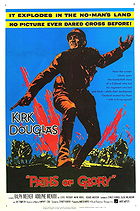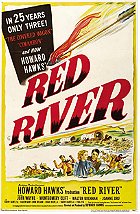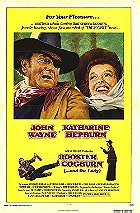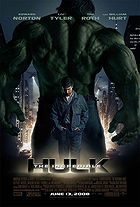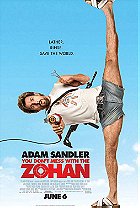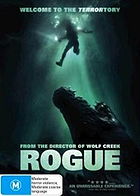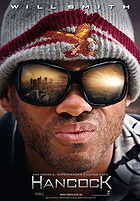Director William A. Wellman's The Ox-Bow Incident, adapted from the novel by Walter Van Tilburg Clark, was so far ahead of its time that audiences were turned off upon its theatrical release. However critics of all stripes were smitten, and over the decades the film's reputation steadily grew. The film preceded the Gary Cooper/Grace Kelly Western classic High Noon by almost a decade. This aforementioned Gary Cooper Western is typically considered the benchmark of its genre; the first of a new brand of Westerns that was lean, incisive, and unflinching in its representation of the uglier facets of humanity. High Noon was also responsible for numerous John Wayne escapades, the Sergio Leone spaghetti Westerns, etc.
But The Ox-Bow Incident came first, and it shares the same psychological density and raw simplicity, not to mention a similarly concise running time as the later film. The Ox-Bow Incident was, in many ways, High Noon before the world was ready for High Noon. It's an astonishing tale delivering an uncompromising message about mob mentality. This is no mere museum piece or ancient artefact solely for cinema enthusiasts...it's a remarkably poignant, powerful and entertaining picture that more than holds its own all these decades later. This sombre, somewhat simplistically liberal Western is also one of the first films to condemn frontier machismo. This taut little film eschews Hollywood sensationalism to centre on America's violent core, which is still relevant even today.
As the movie opens, two itinerant ranch hands named Gil Carver (Fonda) and Art Croft (Morgan) ride into a small town in 1800s Nevada. Stopping off at the local saloon for a drink, the two are soon informed that the local ranchers have been plagued by cattle rustlers. A young cowboy soon enters the picture, spreading news that a popular rancher has been brutally gunned down and cattle stolen. The enraged townspeople, joined by a few drifters (including the reluctant Gil and Art), immediately congregate to form a posse to catch the perpetrators. The posse is nothing more than a lawless lynching mob, led by a surly deputy who abuses his power in the sheriff's absence. In the dead of night the mob stumble upon three men (Andrews, Quinn and Ford) embarking on a cattle drive. On the basis of flimsy, circumstantial evidence the mob assumes these three are their prey. A majority of the mob appear determined to see that justice is done on the spot, whereas only a few wish to see the case taken to court before any hangings occur. As it becomes apparent that blood-lust may win out over rationality, the tension mounts in this uncompromising study of mob violence.
The weight of having to make a life-and-death decision weighs on the soul of each man in the posse, and we're therefore compelled to share their burden. The Ox-Bow Incident builds to a shattering and admirably unconventional conclusion. This conclusion is unrelenting in its determination to be both realistic and faithful to the book. It postulates that each man should stand up, stand apart and be counted as a man of individual opinion, even if it means not following the will of the majority. The movie becomes a treatise on the dynamics of mob rule and vengeance for the sake of vengeance. For the film's final half it's utterly gripping and transfixing.
William A. Wellman directed the picture with stark realism that is as sharp as a knife from a script by Lamar Trotti which is beautifully brief with situations and words. Wellman blesses the film with tersely economic pacing and a tense atmosphere. At a brief 75 minutes, the film is brisk in delivering its message with only minor digressions into cheese territory, such as Carver's ex-girlfriend briefly entering the picture. This aforesaid sub-plot is planted but not adequately nurtured. It's slightly detrimental to the otherwise brisk pacing, unfortunately, and it's the most unnecessary scene in the film. Aside from that slight plot deviation, it remains quite on track. Taking its cue from its title, the film is succinct and brief, primarily concerning the one "incident" without wasting energy on superfluous characterisations or extraneous action. It's all for the best, and is all the more effective for it.
To cut costs (the film was made in the grim early days of WWII, thus budgets needed to be as small as possible) the movie was shot on sets. For the most part this technique works extraordinarily well, increasing the tone of claustrophobia. At other times, such as the aftermath of the incident, it feels a tad artificial and phoney.
The Ox-Bow Incident bears an unmistakable affinity to film noir, not only due to the moody shadowy photography as there's also a gallery of grotesques that inhabit this decidedly uncelebratory depiction of the frontier spirit. After a gloomy climax that refuses to let anyone off the hook, The Ox-Bow Incident concludes in a very non-Hollywood fashion. Gil and the wounded Art limp out of town, passing the same draggy dog that was visible when they initially rode in. William A. Wellman also adds a masterly wrinkle to the sentimental scene of Fonda reading a letter by obscuring Fonda's eyes with a hat brim. The director did this habitually when he wanted an audience to concentrate on a message as opposed to a personality. Wellman's direction also circumvents the typical Western clichés. He keeps the action enclosed in a small setting where most directors would broaden the horizons in favour of scope and scale. A subtle yet effective melancholy tune accompanies the visuals.
Leading the cast is recognised actor Henry Fonda who turns in a superlative performance. His lackadaisical persona melds interestingly with his character's ornery temperament to generate a moral ambiguity. This ambiguity clouds his character's allegiances in the "vengeance vs. justice" debate in mystery until the moment when he's strained to overtly choose sides. Fonda's Gil Carver is no solid, gallant, upright citizen. He's an errant cuss who gets himself entangled in a bar fight moments after arrival at the small town. Yet he's one of the few characters in the story who has a conscience and uses it. In a way, this is a peculiar foreboding of his role in the 1957 film 12 Angry Men.
Lamar Trotti's screenplay torments us with hints of mystery about the three men who stand accused; it is only through the heart-wringing performance of Dana Andrews, who admirably outshines his co-stars, that there's a definite sense of the trio's innocence. Andrews as the bewildered and helpless leader of the doomed trio exudes character and integrity, and does much to make the film an overpoweringly distressing tragedy. It's impossible not to feel for Andrews' character: heartbroken over the probability of his wife and young children being left to fend for themselves in a rough frontier if he is hanged.
An excellent complementary performance by Anthony Quinn as one of the suspected murderers is another highlight. Quinn's brash confidence and fearlessness as a Mexican outlaw (operating under an alias) undermines any faith we have in the trio's innocence. Francis Ford (who got his son John into the industry) is amazing as a disorientated old man unable to comprehend what's actually happening. Frank Conroy's performance of the demagogue (donning a Confederate officer's uniform) is authoritative and utterly stunning. Harry Davenport and Leigh Whipper are more emotionally affecting as champions of the right. Mary Beth Hughes was pulled in for one brief, ironic scene with Fonda which gives a justification for his mood. The rest of the cast can take bows for their small but impressive roles. All these actors have their moments to shine towards the climax when something tragic is revealed. There are emotive expressions of guilt in each man, effectively conveying the lightning bolt they've all be hit with. These precise performances, coupled with a brilliant, tightly-written script, keep our hearts and minds at constant war with one another.
There's something extraordinary about the way in which The Ox-Bow Incident places joint emphasis on its characters and storytelling, as opposed to the simple genre norms John Wayne films adhere to. This is an ugly study in mob violence, unrelieved by any human clemency save the vain reproach of a small minority and mild post-lynching remorse. In 75 minutes, the film exhibits most of the baser inadequacies of men - cruelty, blood-lust, ruffianism, pusillanimity and sordid conceit. It offers a catastrophic infringement of justice with little repercussion to sweeten the bitter draught. The Ox-Bow Incident is a top-tier Western as powerful, unsentimental and thought-provoking as it was decades ago. The film won't brighten your day...but for sheer stark realism it's hard to beat. The film is a quietly compelling argument against the human tendency towards irrational behaviour. This is a true landmark movie, one that delivers a worthwhile message: betray your conscience and it will haunt you forever.
9.1/10
 Login
Login
 Home
Home 183 Lists
183 Lists 1664 Reviews
1664 Reviews Collections
Collections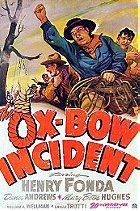
 0 comments,
0 comments, 